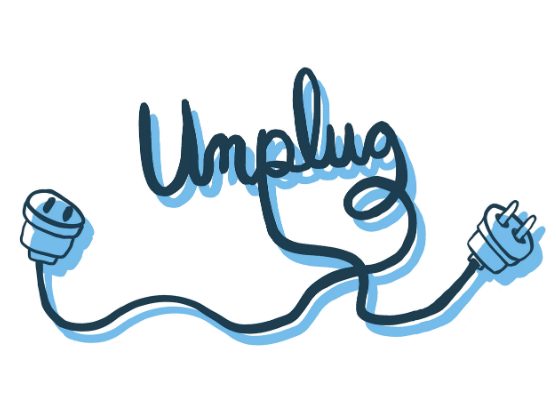Time to unplug: Stop feeling like you’re always ‘on’
 Even before the COVID-19 pandemic led much of the U.S. workforce to perform duties remotely, technology increasingly blurred the line between home and office. The ability to log into the company system at any hour from one’s own computer or answer emails beyond traditional business hours offers a great deal of convenience and flexibility. However, it also can lead to the feeling that you’re always “on.”
Even before the COVID-19 pandemic led much of the U.S. workforce to perform duties remotely, technology increasingly blurred the line between home and office. The ability to log into the company system at any hour from one’s own computer or answer emails beyond traditional business hours offers a great deal of convenience and flexibility. However, it also can lead to the feeling that you’re always “on.”
Having children and/or a spouse around 24/7 during this crisis further contributes to the lack of distinction between professional life and private time. No doubt the arrangement has been a godsend for many businesses and educational institutions that would have had to cease operations completely without a remote option. However, the jumble can prove stressful.
With the odds heavy that many workers will remain virtual for the foreseeable future, consider these strategies aimed at helping to disconnect and unwind:
Give work its own physical space
Creating a dedicated room (or even just a table) for job-related tasks not only keeps your materials at the ready and your weekly report from accidentally ending up in your son’s biology folder, it establishes a mindset. Instead of work tools and papers creeping into all areas of your home and reminding you of things that still need finishing, they stay out of sight and out of mind.
“In my home, when I close my office door, you would never know that I work from home,” says Orlando personal injury lawyer Tina Willis. “The rest of my house looks like a home, not an office or work station. I think that helps mentally with separation once I finish working each day.”
Take tech breaks
Can’t resist the temptation to complete a little bit more or check every incoming message regardless of the hour? Consider logging off the computer and turning off the phone during certain periods of the day, after a set time in the evening, or on weekends. If you wish, set up a reply message notifying the sender when you’ll respond, or include your “office hours” in your signature line and voice mail.
“Because PR is a 24/7 profession, I make a point to completely shut down my cellphone and laptop between the hours of 5-7 p.m. (sometimes longer) to give my full attention to my family and friends: dinner time, homework, and scheduled social activities,” says Mary Ellen Ynes, an independent communications professional based in the San Francisco Bay Area.
Create rituals
When you went to the office, chances are you had patterns that gave the day structure and flow, such as heading through a drive-in for coffee on the way in or reading the newspaper on the train ride home. Such habits allow transition between work and private time. Look for ways to incorporate similar cues in your present situation, perhaps by brewing a pot of tea before sitting down at the computer in the morning or walking the dog as the bridge action between the end of work and the start of evening relaxation.
“Change your clothes,” suggests Nate Masterson, HR manager for Maple Holistics. “As amazing as it sounds, working from your bed in your pajamas may be good for a day or two, but not as a lifestyle choice. You need the physical aspect of it to match the mental change you are implementing. Home is home and work is work, even if work happens to be at home. And, contrary-wise, when you are done, change back to your hangout-at-home clothes as soon as you can.”
Make a point of relaxing
Lastly, be certain to give downtime its due. Give your full attention to people that matter and activities that you enjoy during nonwork hours. Carve out time for an online exercise class. Do a crossword puzzle without interruption. Cook a fancy dinner with your spouse for a home-based date night. Gather the kids for a rousing game of Monopoly. Just because you “saw” your family during hours when you’d usually be at the office does not mean you actually had quality interaction.
“When you work from home, it may be difficult to disconnect from your work. But, consider this: Time away from work actually helps you become more productive,” says Maura Thomas, author of Personal Productivity Secrets. “Breaks aren’t just a nicety. You need them to do your best work. Unwinding with friends, family and hobbies reduces stress and energizes your brain. But you lose those benefits if you spend evenings and weekends wrapping up ‘just one more thing’ for work or constantly emailing.”





